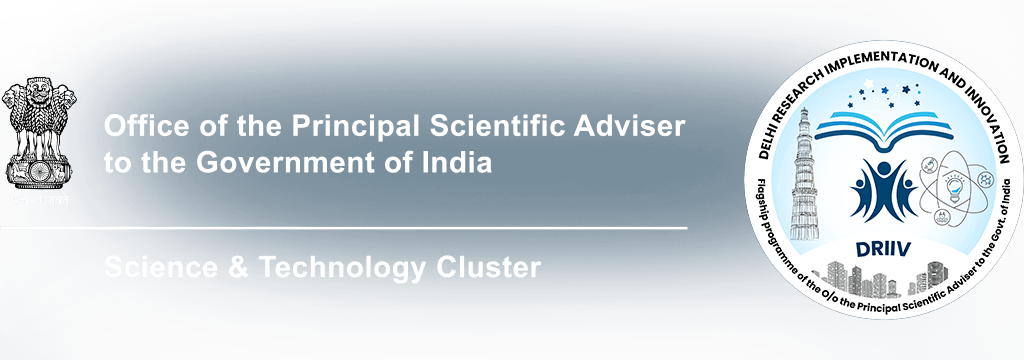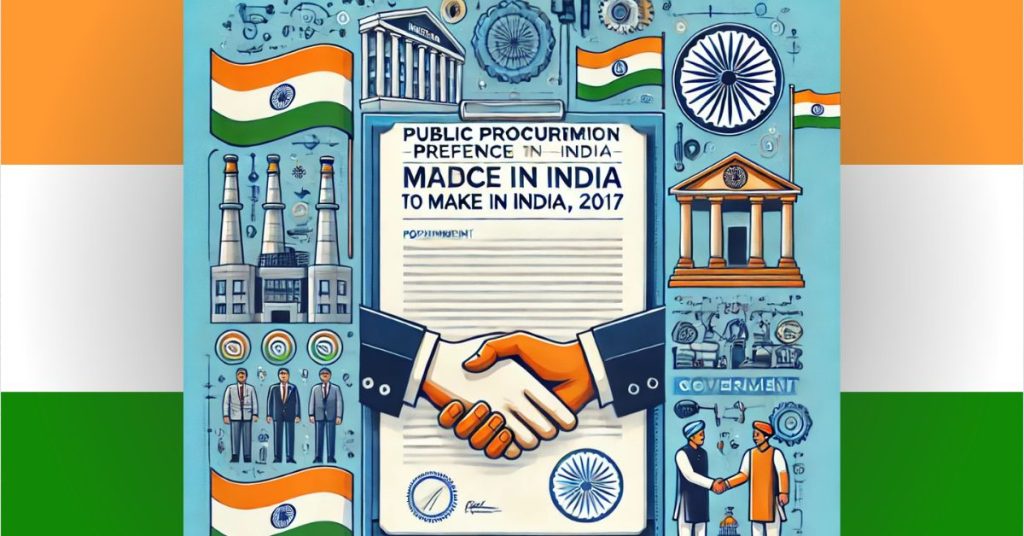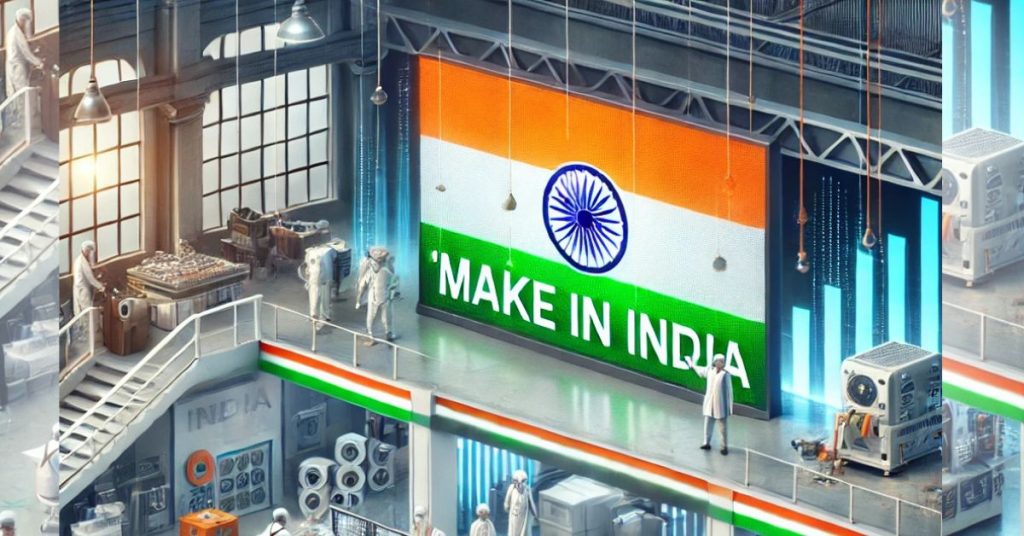The Public Procurement (Preference to Make in India) Order, 2017 is a government policy aimed at promoting Indian-made products and services in government purchases. The purpose of this order is to support domestic industries, reduce reliance on imported goods, and create more job opportunities in India.
This order is a part of the “Make in India” initiative, which was launched in 2014 to encourage companies to manufacture products in India. The policy ensures that Indian businesses, especially small and medium enterprises (SMEs), get priority when government departments and public sector undertakings (PSUs) buy products or services.
By giving preference to locally manufactured goods, the government aims to strengthen the economy, improve self-reliance, and boost industrial growth.
Objectives of the Public Procurement Order
The key objectives of the Public Procurement (Preference to Make in India) Order, 2017 are:
- Encouraging Local Manufacturing – The order ensures that Indian manufacturers are given priority in government procurement.
- Reducing Imports – The government wants to reduce dependence on foreign-made products and promote self-sufficiency.
- Creating Jobs – When local businesses grow, they create more employment opportunities for Indian workers.
- Supporting Small and Medium Enterprises (SMEs) – SMEs play a crucial role in economic growth, and this policy helps them secure government contracts.
- Boosting Innovation and Technology – Indian companies are encouraged to invest in research and development (R&D) to improve product quality and compete globally.
- Strengthening National Security – Relying on locally made products in key sectors like defense, healthcare, and infrastructure ensures better security and reduces risks associated with foreign dependence.
Who is Required to Follow This Order?
The Public Procurement (Preference to Make in India) Order, 2017 applies to:
- Government Departments and Ministries – All central government ministries and departments must follow this order when purchasing goods and services.
- Public Sector Undertakings (PSUs) – Government-owned companies must also prioritize Indian products in their procurement.
- State Governments and Public Institutions – Institutions that receive government funding, such as universities and research organizations, must comply with this policy.
- Government Tenders – Any government contract involving the purchase of goods or services must follow the preference rules outlined in this order.
Categories of Suppliers
The order divides suppliers into three categories based on the percentage of local content in their products:
- Class-I Local Supplier – A supplier whose product has at least 50% local content. These suppliers get the highest preference in government procurement.
- Class-II Local Supplier – A supplier whose product has between 20% and 50% local content. They are considered only if Class-I suppliers are not available.
- Non-Local Supplier – A supplier whose product has less than 20% local content. These suppliers do not get any preference in government tenders.
How Preference is Given to Local Suppliers
The government has set clear rules to ensure local suppliers get priority:
- If a Class-I Local Supplier and a Non-Local Supplier bid for the same contract, the local supplier is given preference, even if their price is slightly higher.
- If a Class-I Local Supplier is available, then bids from Class-II or Non-Local Suppliers are not considered.
- If the lowest bid (L1) is from a Non-Local Supplier, the Class-I Local Supplier is given a chance to match the price and win the contract.
These rules ensure that Indian manufacturers get more opportunities to participate in government contracts.
Exemptions and Special Provisions
Although the government promotes local suppliers, there are some situations where exemptions are allowed:
- If the required goods or services are not available in India, the government can buy from foreign suppliers.
- If the product requires advanced technology that is not available in India, exemptions can be given.
- If there is an urgent requirement and local suppliers cannot meet the demand, the government may consider foreign suppliers.
These exemptions are granted only in specific cases and must be approved by the relevant authorities.
Implementation and Monitoring
The Department for Promotion of Industry and Internal Trade (DPIIT) under the Ministry of Commerce and Industry is responsible for implementing and monitoring the order.
To ensure that the policy is followed properly, the government has introduced several steps:
- Certification of Local Content – Suppliers must submit a self-declaration stating the percentage of local content in their products. In some cases, certification from a government authority is required.
- Tender Evaluation Process – Government agencies evaluate all bids to check local content and ensure that preference is given to Class-I suppliers.
- Complaint and Grievance Mechanism – If any supplier feels that the policy has not been followed properly, they can file a complaint with DPIIT for resolution.
Impact of the Order on Indian Industries
Since its introduction, the Public Procurement (Preference to Make in India) Order, 2017 has had a significant impact on various industries:
- Growth of Indian Manufacturing – Many Indian manufacturers have seen an increase in demand for their products.
- Increase in MSME Participation – Small and medium enterprises now have more opportunities to supply goods and services to the government.
- Encouragement of Research and Development – Indian companies are investing more in R&D to improve their products and compete globally.
- Reduction in Imports – The policy has helped reduce India’s reliance on foreign-made goods.
Challenges in Implementation
Despite its benefits, the policy also faces several challenges:
- Quality Concerns – Some Indian manufacturers struggle to meet the required quality standards.
- Lack of Awareness – Many small businesses are not fully aware of the policy and its benefits.
- Slow Certification Process – Getting certification for local content can be time-consuming, delaying procurement processes.
- Dependence on Imported Raw Materials – Some industries still rely on imported raw materials, making it difficult to achieve high local content.
The government is continuously working to address these challenges and improve the effectiveness of the order.
Future of the Public Procurement Order
To make the order more effective, the government is taking several steps:
- Expanding the Scope of the Order – More industries and sectors are being included under the policy.
- Simplifying the Certification Process – Efforts are being made to speed up and simplify the local content certification process.
- Stronger Monitoring Mechanisms – The government is working on improving monitoring and enforcement to ensure compliance.
- Investment in Skill Development – Training programs are being launched to improve the skills of Indian workers and enhance product quality.
The success of this policy depends on the active participation of Indian businesses and industries. By improving manufacturing capabilities, investing in innovation, and ensuring high-quality standards, Indian companies can benefit from government contracts and contribute to national growth.
Conclusion
The Public Procurement (Preference to Make in India) Order, 2017 is a key policy aimed at promoting local industries and reducing dependence on foreign goods. By giving preference to Indian-made products in government purchases, the order helps create jobs, support small businesses, and boost economic growth.
Although there are some challenges in implementation, continuous government efforts and industry participation will help strengthen India’s position as a global manufacturing hub. Businesses should take advantage of this policy to grow and contribute to India’s economic development.
Also Read:
Frequently Asked Questions
What is the Public Procurement Preference Order 2017?
The Public Procurement (Preference to Make in India) Order, 2017 is a policy that gives priority to Indian-made products and services in government purchases. It aims to promote local manufacturing, reduce imports, support small businesses, and create more job opportunities in India.
Who benefits from the Public Procurement Order 2017?
Indian manufacturers, especially Class-I Local Suppliers (with at least 50% local content), benefit the most. Small and medium enterprises (SMEs) also get more opportunities to participate in government contracts, leading to economic growth and increased employment in India.
How does the Public Procurement Order 2017 work?
The order gives first preference to Class-I Local Suppliers in government contracts. If they are available, non-local suppliers are not considered. If a non-local supplier has the lowest bid, a Class-I supplier is given a chance to match the price and win the contract.
Are foreign suppliers allowed under this order?
Foreign suppliers are only allowed if no Indian supplier can provide the required product or service. In cases of advanced technology, urgent requirements, or unavailable local alternatives, exemptions are given, but only after proper approval from government authorities.
What challenges exist in implementing this order?
Challenges include ensuring high-quality standards, creating awareness among small businesses, delays in local content certification, and dependence on imported raw materials. The government is addressing these issues by simplifying processes, improving monitoring, and investing in skill development programs.




